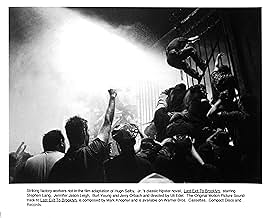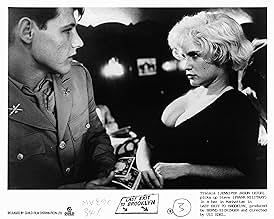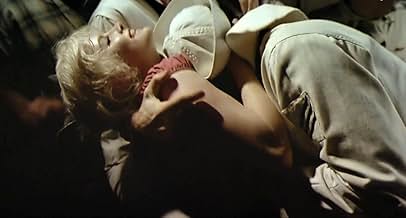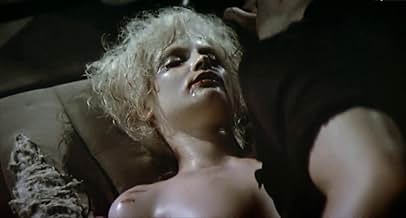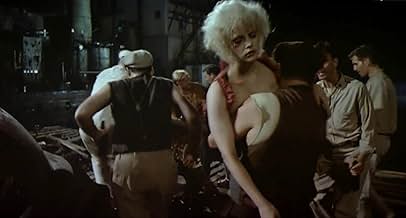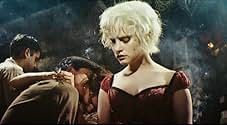IMDb RATING
6.8/10
7.2K
YOUR RATING
Set in Brooklyn during the 1950s against a backdrop of union corruption and violence. A prostitute falls in love with one of her customers. Also a disturbed man discovers that he is homosexu... Read allSet in Brooklyn during the 1950s against a backdrop of union corruption and violence. A prostitute falls in love with one of her customers. Also a disturbed man discovers that he is homosexual.Set in Brooklyn during the 1950s against a backdrop of union corruption and violence. A prostitute falls in love with one of her customers. Also a disturbed man discovers that he is homosexual.
- Awards
- 6 wins & 1 nomination total
Frank Acciarito
- Eddie
- (as Frank Acciarto)
- Director
- Writers
- All cast & crew
- Production, box office & more at IMDbPro
Storyline
Did you know
- TriviaRalph Bakshi had made a previous attempt to direct the film, a production he was to co-produce with Steve Krantz and author Hubert Selby Jr. Actor Robert De Niro accepted a major role in the film. However, the project fell apart when Bakshi and Krantz had a falling out. Bakshi and Selby became friends, and, according to Bakshi, they "tried a few other screenplays after that on other subjects, but I could not shake Last Exit from my mind."
- SoundtracksBe Ba-ba Le-ba
Written and Performed by Helen Humes
Courtesy of CEMA Special Markets/EMI Records, Inc.
Featured review
After being blown away by the film version of Requiem for a Dream, I recently began reading some of Selby's books. I started with The Room and moved on to Last Exit to Brooklyn. Tonight I watched the film.
I think it's very unfortunate that people have criticized it here for exactly the qualities that make it unique compared to most American films. Yes, it's dark, and yes, there are not always clear resolutions to every character's part of the story. Those are qualities present in Selby's book and it would have been a shame for the filmmakers to abandon them, just as it would have been a shame for Aronofsky to cave to the pressures to find a happier ending for his film of Requiem...
As a reader of the book I think those negative comments are even more misguided, because the screenwriter did quite a bit to try to make the material more accessible for the viewing audience. He intertwined what are essentially separate stories (the book is more like a collection of short stories around related themes than a traditional novel), and found what was probably the happiest ending possible given the material. The book doesn't end on the relief of the end of the strike, but finishes with an amazing coda that contains characters like Abraham, a man who spends money on clothes and his car but won't cough up to buy vitamins for his malnourished children.
My one big complaint about the screenplay was the treatment of Harry Black's character. In the book he is a largely ineffectual blowhard who is laughed at by almost everyone around him, but in the film he is almost heroic at times, leaping into the middle of the confrontation at the picket line. I think his descent is more credible in the book, but Selby was also able to get inside Harry's head on paper in a way that's difficult to translate into film.
Overall I think this film is a very excellent adaptation of extremely difficult material, and I recommend it to anyone who is willing to watch a story about the pain and suffering that happens in everyday life without the Hollywood gloss.
I think it's very unfortunate that people have criticized it here for exactly the qualities that make it unique compared to most American films. Yes, it's dark, and yes, there are not always clear resolutions to every character's part of the story. Those are qualities present in Selby's book and it would have been a shame for the filmmakers to abandon them, just as it would have been a shame for Aronofsky to cave to the pressures to find a happier ending for his film of Requiem...
As a reader of the book I think those negative comments are even more misguided, because the screenwriter did quite a bit to try to make the material more accessible for the viewing audience. He intertwined what are essentially separate stories (the book is more like a collection of short stories around related themes than a traditional novel), and found what was probably the happiest ending possible given the material. The book doesn't end on the relief of the end of the strike, but finishes with an amazing coda that contains characters like Abraham, a man who spends money on clothes and his car but won't cough up to buy vitamins for his malnourished children.
My one big complaint about the screenplay was the treatment of Harry Black's character. In the book he is a largely ineffectual blowhard who is laughed at by almost everyone around him, but in the film he is almost heroic at times, leaping into the middle of the confrontation at the picket line. I think his descent is more credible in the book, but Selby was also able to get inside Harry's head on paper in a way that's difficult to translate into film.
Overall I think this film is a very excellent adaptation of extremely difficult material, and I recommend it to anyone who is willing to watch a story about the pain and suffering that happens in everyday life without the Hollywood gloss.
- richburroughs
- Jul 20, 2001
- Permalink
- How long is Last Exit to Brooklyn?Powered by Alexa
Details
- Release date
- Countries of origin
- Language
- Also known as
- Letzte Ausfahrt Brooklyn
- Filming locations
- Production companies
- See more company credits at IMDbPro
Box office
- Gross US & Canada
- $1,730,005
- Opening weekend US & Canada
- $186,489
- May 6, 1990
- Gross worldwide
- $1,730,005
- Runtime1 hour 42 minutes
- Color
- Aspect ratio
- 1.85 : 1
Contribute to this page
Suggest an edit or add missing content



